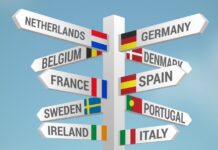On October 10, 2020, thousands of citizens represented the diversity of their respective countries; gathered in more than 70 countries around the world, to deliver their vision for the future of the Internet, making it the largest citizen participation ever organized. Initiated by Missions Publiques, the Global Citizen Dialogue on the Future of the Internet is part of a process of citizen deliberation and participatory democracy on a global scale, whose objective is to give rise to a citizen’s voice on a key topic: the future of the Internet.
From Benin to Fiji, India, Yemen, Peru, and Canada, 78 countries responded to the call from Missions Publiques to implement the Global Citizens’ Dialogue on the Future of the Internet locally. One hundred citizens from every country, whether they have Internet access or not, were invited to learn, discuss, and decide what will make the Internet a better tool for them in the years to come. The French Citizen Dialogue was implemented by Dr. Haseeb Ullah and Mr. Umar Khan, the partners of Missions Publiques in Pakistan.
At a time when the Internet is becoming the backbone of our social interactions, the current pandemic reflects the urgency of this discussion. Most of the themes of the dialogue were therefore addressed through the prism of COVID-19: digital identity, the digital public sphere, digital inclusiveness, and artificial intelligence. The 78 countries will conduct the 5th session on a digital topic in line with their economic, social, or political context.
This global deliberation will result in informed citizen recommendations to be submitted to decision-makers at the local, regional, and international levels. The results of the deliberation will be submitted to the Internet Governance Forum 2020, under the theme “Internet United”. For Antoine Vergne, Co-Director of Missions Publiques and initiator of the project, “The challenges of the 21st-century call for a revival of trust between citizens and decision-makers. This is why modes of governance must evolve and adapt to the challenges ahead. » “We, the Internet” project is coordinated by a coalition of leading global partners such as European institutions (European Commission, Council of Europe), UNESCO, Internet Society, Wikimedia Foundation, World Wide Web Foundation, World Economic Forum, the Swiss and German governments and private sector actors such as Google and Facebook.




